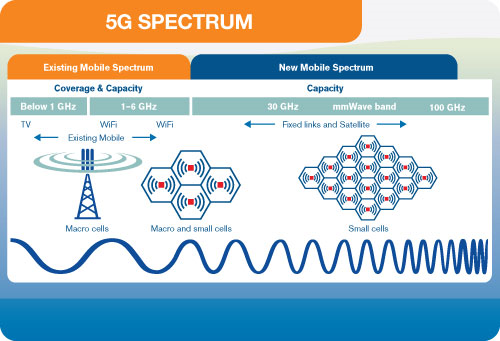A couple of months ago, in the midst of the lockdown, several EU countries were confronted with a series of strange degradations. The victims? 5G antennas, suspected of propagating the coronavirus.
Far from only fascinating some bored plot-lovers, 5G has been arousing passions for some time now. As it becomes yet another topic of quarrel between the US and China, it is also starting to be the favourite subject of journalists interviewing ecologist politicians, as it gives them the perfect opportunity for the very question they are dying to ask – are you arguing for degrowth?
So what is 5G exactly? Is it a digital revolution that will allow us to live better (connected) lives? Or is it just a convenient tool to watch pornography in elevators? And most of all, what does it mean for our planet?
In this week’s episode – what is 5G anyway?
We hear a lot about 5G, but what is it exactly?
5G is the next and fifth generation of mobile broadband, set to replace 4G, developed during the 2010s. As illustrated in the graph below, each mobile network generation has upgraded communication networks, either by improving their quality or by enabling new communication channels.

From 1G to 5G. Credit: Qualcomm
Unlike 4G, 5G is able to adapt to many more needs by operating on three different spectrum bands. Each of them is a compromise between coverage capacity and performance. The higher the frequency, the higher is the performance but the lower is the coverage.

Low-band and mid-band spectra (lower frequencies) were already used in the past. The revolution truly lies in the high-band spectrum. This latter delivers the highest performance as it can offer peak speeds up to 10Gbps. With 5G, you will be able to download Fortnite on your PC in a second and a half: how impressive is that? In addition to this, 5G also has extremely low latency: the internet will answer all your requests without the slightest loading time.
When and how will it be implemented?
Here is the EU Roadmap to 5G:
5G lies at the heart of major geopolitical tensions, nourished by the competition between the US and China. As a technology that brings about deep social and economic transformations, 5G is a major stake for countries. Consequently, the European Union has made its 5G autonomous development a priority in order to preserve its sovereignty against China and the US ambitions.
Geopolitical matters are not the only motivation for developing 5G. This new generation also comes with a great deal of technological advances which explain why the 5G debate captures the world’s interest. To further understand why the EU is so keen on developing 5G, stay tuned for episode 2!
Written by: Mathis Fidaire, Misty Monteville and Pauline Pasquier
